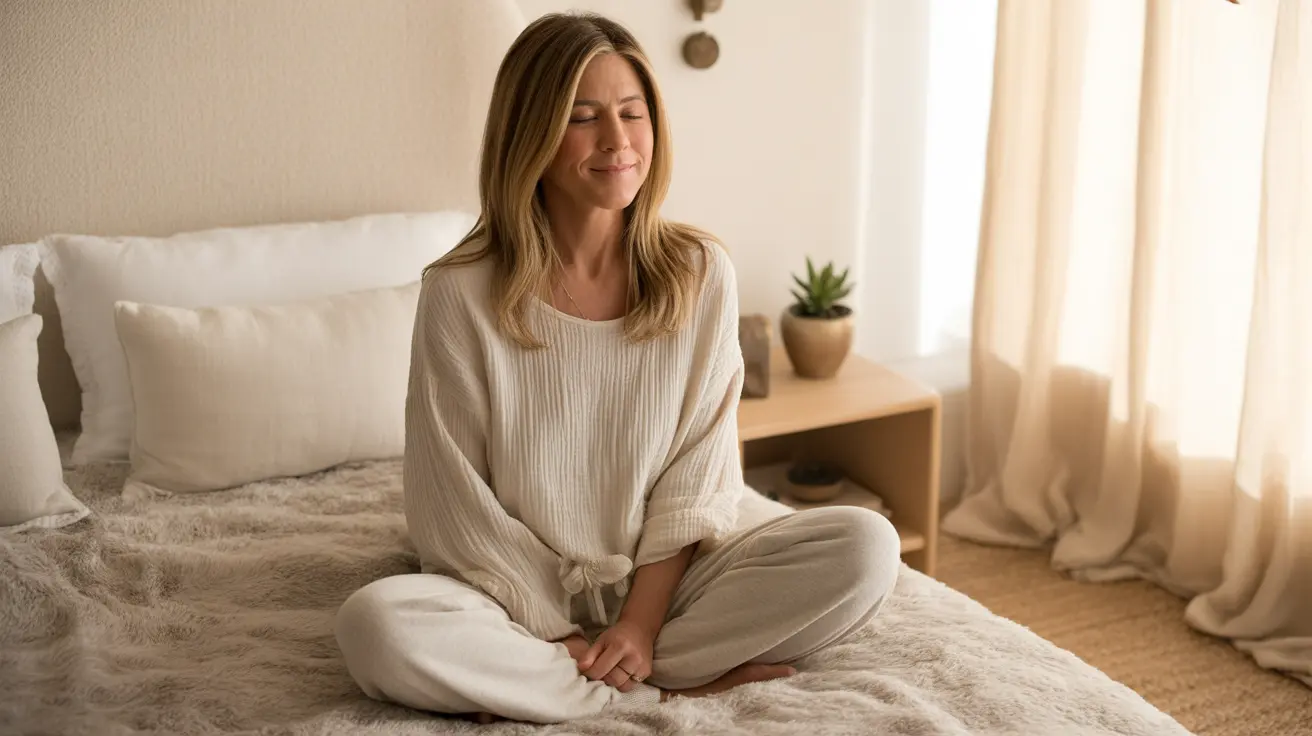Many people struggle with sleep issues, and celebrities are no exception. Jennifer Aniston, known for her successful acting career and wellness advocacy, has been remarkably open about her personal battle with insomnia and her journey to finding effective sleep solutions.
In this comprehensive look at Aniston's sleep experiences, we'll explore her struggles with insomnia, the strategies she's developed to improve her sleep quality, and the valuable lessons we can learn from her journey to better rest.
Understanding Jennifer Aniston's Sleep Struggles
For years, Jennifer Aniston faced significant challenges with sleep, experiencing difficulties falling asleep, staying asleep, and dealing with sleep anxiety. These issues began affecting various aspects of her life, from her work performance to her overall well-being.
The actress has described nights of tossing and turning, watching the clock, and experiencing mounting anxiety about not being able to fall asleep. This created a cycle of sleep anxiety that only made quality rest more elusive.
Impact on Daily Life and Career
Aniston's sleep problems significantly impacted her daily functioning. She experienced difficulty with memory, concentration, and maintaining energy levels throughout the day. These challenges were particularly concerning given the demanding nature of her career in the entertainment industry.
Professional Intervention and Sleep Education
Recognizing the severity of her sleep issues, Aniston sought professional help. Working with sleep specialists helped her understand that quality sleep isn't a luxury but a fundamental necessity for health and well-being.
Medical Insights and Treatment Approach
Her doctors helped her understand the science behind sleep and the importance of consistent sleep patterns. They emphasized how proper sleep impacts everything from cognitive function to emotional well-being and physical health.
Jennifer Aniston's Sleep Success Strategies
Through trial and error, Aniston developed a comprehensive approach to managing her sleep issues. Her strategy includes several key components:
- Maintaining a consistent bedtime routine
- Creating a sleep-friendly environment
- Limiting screen time before bed
- Practicing meditation and relaxation techniques
- Regular physical exercise during the day
- Avoiding caffeine in the evening
Environmental Modifications
Aniston emphasizes the importance of creating an optimal sleep environment. This includes maintaining a cool room temperature, using comfortable bedding, and ensuring the bedroom is dark and quiet.
Frequently Asked Questions
What sleep problems has Jennifer Aniston experienced and how did they affect her daily life?
Jennifer Aniston has struggled with chronic insomnia, including difficulty falling asleep and staying asleep. These issues affected her memory, concentration, and energy levels, impacting both her professional and personal life.
What sleep routines and habits does Jennifer Aniston use to manage her insomnia?
Aniston maintains a consistent bedtime routine, practices meditation, limits screen time before bed, exercises regularly, and creates an optimal sleep environment. She also focuses on managing stress through various relaxation techniques.
How did Jennifer Aniston's doctor help her understand the importance of prioritizing sleep?
Her doctors educated her about sleep science and helped her understand that quality sleep is essential for overall health, not just a luxury. They helped her develop a comprehensive approach to addressing her sleep issues through both behavioral changes and environmental modifications.
What are common signs that someone might be struggling with insomnia like Jennifer Aniston?
Common signs include difficulty falling asleep, frequent night wakings, watching the clock anxiously, daytime fatigue, trouble concentrating, and experiencing anxiety about sleep. These symptoms can create a cycle that makes quality rest increasingly difficult to achieve.
What practical tips does Jennifer Aniston recommend for improving sleep quality naturally?
Aniston recommends maintaining a consistent sleep schedule, creating a relaxing bedtime routine, limiting screen time before bed, practicing meditation, exercising regularly during the day, and optimizing the bedroom environment for sleep.




